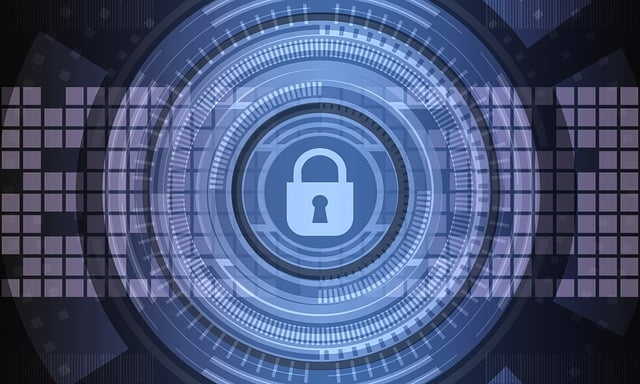There’s no doubt that cybersecurity is a hot topic right now. Businesses of all sizes realize the importance of protecting their data, and employees with cybersecurity skills are in high demand. If you’re looking to start or boost your cybersecurity career, one of the best things you can do is get certified.
In this blog post, we’ll take a look at the best cyber security certifications and why they’re so valuable. We’ll also provide advice on choosing the proper certification for you and tips for getting into cybersecurity!
What Is A Cyber Security Certification?

A cybersecurity certification is a credential earned by individuals who want to prove their skills in the cybersecurity field. Many different cybersecurity certifications are available, each focusing on various aspects of the area.
Cybersecurity is a rapidly growing field with opportunities for well-paid, exciting careers. Many cybersecurity professionals make over six figures per year. With hackers finding new ways to infiltrate systems all the time, there is never a dull moment in this line of work.
Some cybersecurity professionals have a degree in cybersecurity, but many do not. Some of the most successful cybersecurity professionals are self-taught. This is because cybersecurity is constantly changing, and the best way to stay up-to-date is to be passionate about learning new things.
However, if you’re looking for a job in cybersecurity, having a certification will give you a significant advantage over those who don’t have one. It is also a great way to show employers that you have the skills and knowledge they need to protect their systems. They can also help you get started in cybersecurity if you need help figuring out where to begin. But with so many different cybersecurity certifications available, it can be challenging to know which is right for you.
Best Cyber Security Certifications
Here’s a list of the top 15 cybersecurity certifications, in no particular order:
- Certified Information Systems Security Professional (CISSP)
- CompTIA Security+
- GIAC Security Essentials Certification (GSEC)
- Cisco Certified Network Associate Security (CCNA Security)
- Check Point Certified Security Master (CCSM)
- Certified Information Systems Auditor (CISA)
- GIAC Certified Incident Handler (GCIH)
- Systems Security Certified Practitioner (SSCP)
- Offensive Security Certified Professional (OSCP)
- GIAC Reverse Engineering Malware (GREM)
- Certified Ethical Hacker (CEH)
- Certified Information Security Manager (CISM)
- CompTIA Advanced Security Practitioner (CASP)
- GIAC Global Industrial Cybersecurity Professional (GICSP)
- Certified in Risk and Information Systems Control (CRISC)
1. Certified Information Systems Security Professional (CISSP):
The CISSP certification is a globally recognized cybersecurity certification sponsored by the International Information Systems Security Certification Consortium, or (ISC)². This course is for CIOs, CISOs, CTOs, and other executives looking to advance their careers in cybersecurity and wants to validate their skills and knowledge.
To be eligible for the CISSP certification, you must have at least five years of experience in two or more of the eight domains of cybersecurity. These include Security and Risk Management, Asset Security, Security Architecture and Engineering, Communication and Network Security, Identity and Access Management, Security Assessment and Testing, Security Operations, and Software Development Security.
The CISSP is one of the most comprehensive cybersecurity certifications available, and employers highly respect it. The certification exam is a multiple-choice exam that covers topics such as asset security, cybersecurity and risk management, cryptography, and more.
2. CompTIA Security+:
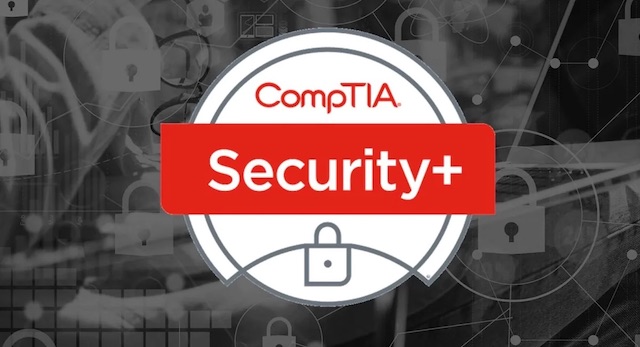
CompTIA Security+ is an entry-level cybersecurity certification sponsored by the Computing Technology Industry Association (CompTIA). The Security+ certificate shows you have the skills and knowledge to secure networks and devices. It covers cybersecurity threats, attacks and vulnerabilities, risk management, and more.
To be eligible for the Security+ certification, you must have at least two years of experience in IT administration with a focus on security.
The Security+ certification exam is a multiple-choice exam that covers topics such as cybersecurity threats, attacks and vulnerabilities, risk management, and more.
3. GIAC Security Essentials Certification (GSEC):
The GSEC is an entry-level cybersecurity certification sponsored by the SANS Institute. The GSEC certification is designed to show that you have the skills and knowledge to be a cybersecurity analyst. It covers cybersecurity threats, attacks and vulnerabilities, risk management, and more. Earning this credential validates your skills in active defense, network security, cryptography, incident response, and cloud security.
To be eligible for the GSEC certification, you must have at least six months of experience in cybersecurity.
4. Cisco Certified Network Associate Security (CCNA Security):
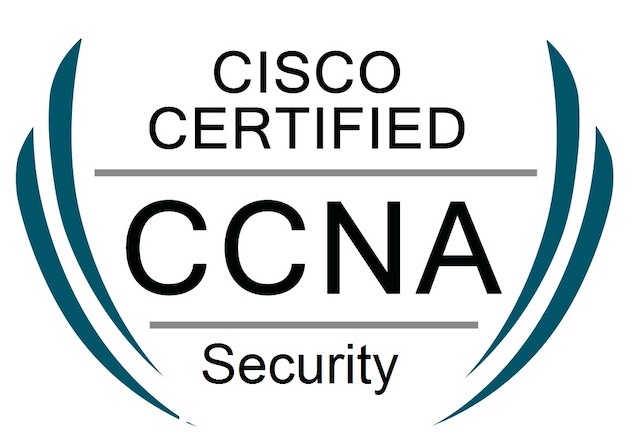
CCNA Security is an entry-level cybersecurity certification that Cisco sponsors. The CCNA Security certification is designed to show that you have the skills and knowledge to secure Cisco networks. It covers cybersecurity threats, attacks and vulnerabilities, risk management, and more.
To be eligible for the CCNA Security certification, you must have at least one year of experience in networking.
The CCNA Security exam is a multiple-choice exam that covers topics such as cybersecurity threats, attacks and vulnerabilities, risk management, and more.
5. Check Point Certified Security Master (CCSM):
The CCSM is an intermediate cybersecurity certification that Check Point sponsors. The CCSM certification is designed to show you have the skills and knowledge to manage Check Point security products. The CCSM credential validates your ability to configure, optimize, and troubleshoot Check Point security systems.
To be eligible for the CCSM certification, you must have at least one year of experience in IT with a focus on security. You must also pass the Check Point Certified Security Administrator (CCSA) exam before taking the CCSM exam.
The CCSM exam is a multiple-choice exam that covers cybersecurity threats, attacks and vulnerabilities, risk management, and more.
6. Certified Information Systems Auditor (CISA):
The CISA is an intermediate cybersecurity certification that ISACA sponsors. The CISA certification is designed to show that aspiring cybersecurity professionals have the skills and knowledge to audit, control, and monitor information systems. The affiliate course teaches you how to plan, communicate, and conduct audits. You’ll also learn to utilize data analytic tools and evaluate IT management controls. The CISA credential validates your ability to audit information systems and understand IS controls.
To be eligible for the CISA certification, you must have at least five years of experience in IT with a focus on security. This certificate focuses on the risk management process and cybersecurity controls. The certification exam tests your knowledge of these topics in six domains:
- Information Systems Audit Process
- Governance and Management of IT
- Information Assets and Data Lifecycle Management
- IT Acquisition, Development, and Implementation
- Protection of Information Assets
- Operations and Maintenance
7. GIAC Certified Incident Handler (GCIH):
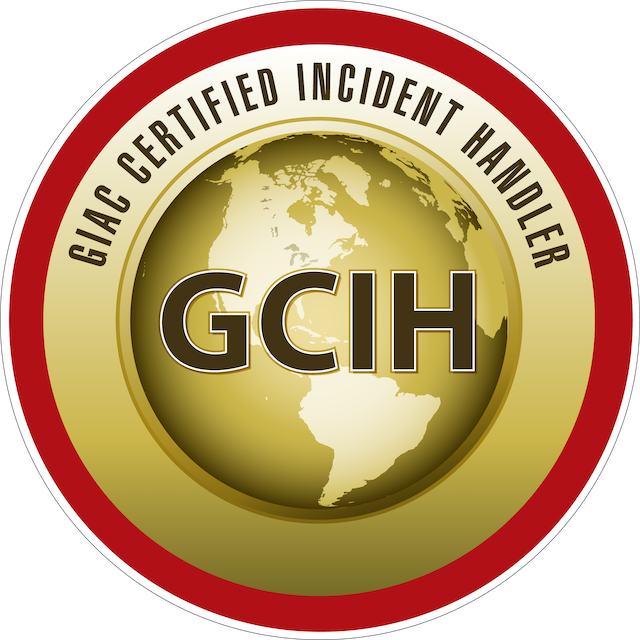
The GCIH is an intermediate cybersecurity certification that GIAC sponsors. The GCIH is designed to show that you have the skills and knowledge to handle and respond to cybersecurity incidents. The GCIH credential validates your ability to identify, contain, and eradicate cybersecurity incidents.
While you don’t need any specific prerequisites to take the GCIH exam, it will benefit you greatly if you understand security principles, networking protocols, and the Windows Command Line.
8. Systems Security Certified Practitioner (SSCP):
SSCP is a cybersecurity certification that is sponsored by (ISC)². The SSCP credential validates your ability to implement, monitor, and troubleshoot security policies and procedures. The SSCP certification is ideal for aspiring and seasoned cybersecurity professionals. These could be network security engineers, security systems administrators, cybersecurity analysts, and database administrators.
It can prepare them for roles such as security analyst, security administrator, or systems administrator.
To be eligible for the SSCP certification, you must have at least one year of experience in cybersecurity. Additionally, you must agree to uphold (ISC) ²’s Code of Ethics. The SSCP exam is three hours long and covers access control, cryptography, security operations, administration, and more.
9. Offensive Security Certified Professional (OSCP):
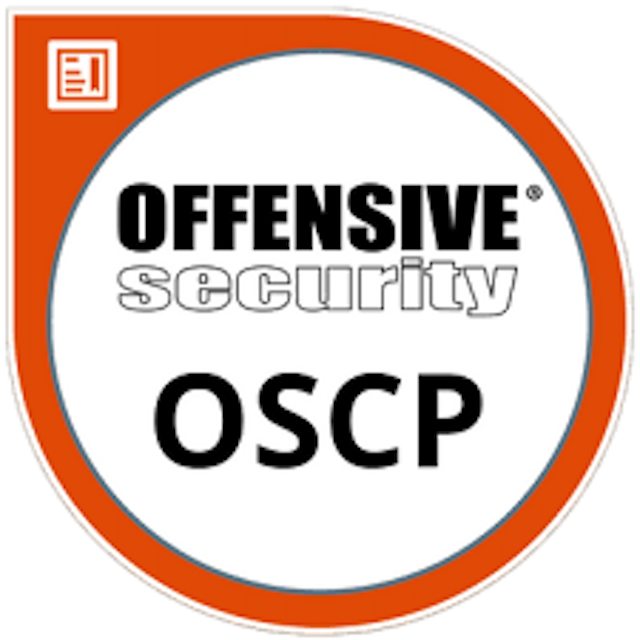
The OSCP is an entry-level cybersecurity certification that Offensive Security sponsors. It is designed for IT professionals who want to learn about ethical hacking and penetration testing. The OSCP credential validates your ability to conduct real-world penetration tests.
Although there are no formal requirements, Offensive Security believes exam-takers should know about networking, Linux, Bash scripting, Perl, or Python. They also recommend taking their Penetration Testing with Kali Linux (PWK) course.
The exam will cover your ability to exploit multiple machines in a series and create comprehensive penetration reports for every attack.
10. GIAC Reverse Engineering Malware (GREM):

The GREM is an intermediate cybersecurity certification that GIAC sponsors. The GREM certification is designed to certify your ability to reverse engineer malware. The GREM credential validates your ability to analyze malicious software and understand how it works.
This certificate would benefit those looking to get into malware analysis or incident response. The GREM exam is a hands-on, practical exam that will test your ability to reverse engineer malware.
11. Certified Ethical Hacker (CEH):

The CEH is an entry-level cybersecurity certification that EC Council sponsors. The CEH certification is designed to certify your ability to conduct ethical hacking. The CEH credential validates your ability to find and exploit vulnerabilities in systems.
This certification provides security professionals with knowledge about the hacking tools and techniques used to hack ethically. It is ideal for those wanting both technical skills and business knowledge related to security threat analysis. It can prepare them for executive or administrative roles related to security threat management.
The CEH exam will cover topics such as Footprinting and Reconnaissance, Scanning Networks, Enumeration, System Hacking, Malware Threats, Sniffing, Social Engineering, DoS/DDoS Attacks, Session Hijacking, Wireless Networks, and more.
To be eligible for the CEH certification, you must have at least two years of experience in IT with a focus on security, or you complete an official EC-Council training. Obtain it to show your capacities in assessment testing, attack discovery, vectors, and avoidance.
12. Certified Information Security Manager (CISM)
CISM is a cybersecurity certification that ISACA sponsors. The CISM credential validates your ability to develop and manage security programs. The CISM certification is ideal for those who are in or want to be in managerial positions. It can prepare them for roles such as information security manager, chief information security officer, or security architect.
To be eligible for the CISM certification, you must have at least five years of experience in information security management. Three years of this experience must be in a managerial role. Additionally, you must agree to uphold ISACA’s Code of Professional Ethics.
The CISM exam is four hours long and covers information security governance, information risk management, information security program development and management, and information security incident management.
13. CompTIA Advanced Security Practitioner (CASP):

CASP is a cybersecurity certification that CompTIA sponsors. It is designed for IT professionals with at least five years of experience in IT administration with a focus on security. The CASP credential validates your ability to conceptualize, design, and implement secure solutions across complex enterprise environments.
The CASP exam is four hours long and covers enterprise security, risk management and mitigation, research and analysis, and integration of computing, communications, and business disciplines.
There are no formal eligibility requirements for the CASP exam, but CompTIA recommends it for experienced cybersecurity professionals with at least five years of experience in IT administration with a focus on security.
14. GIAC Global Industrial Cybersecurity Professional (GICSP):
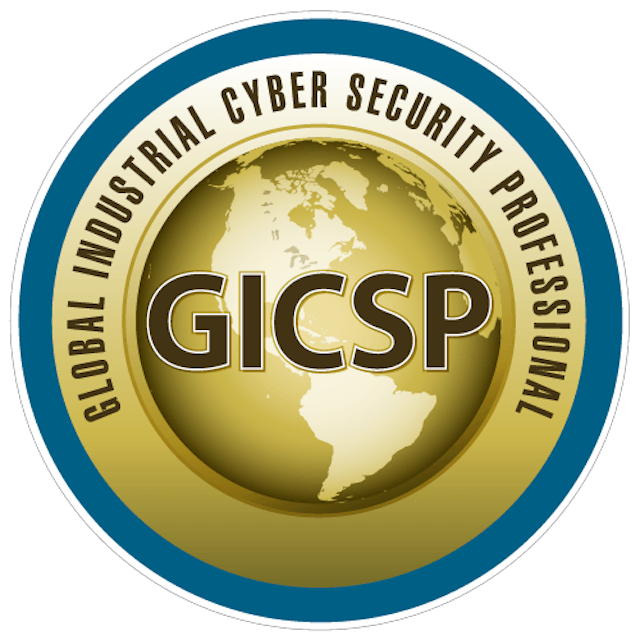
The GICSP is a cybersecurity certification that GIAC sponsors. It is designed for IT professionals who have experience in industrial cybersecurity. The GICSP credential validates your ability to design, implement, and manage cybersecurity programs for industrial control systems.
To be eligible for the GICSP certification, you must have at least two years of experience in industrial cybersecurity. Additionally, you must complete a GICSP training course or have equivalent knowledge.
The GICSP exam is four hours long and covers cybersecurity principles, basic industrial cybersecurity concepts, risk management, security architecture and design, and more.
15. Certified in Risk and Information Systems Control (CRISC):
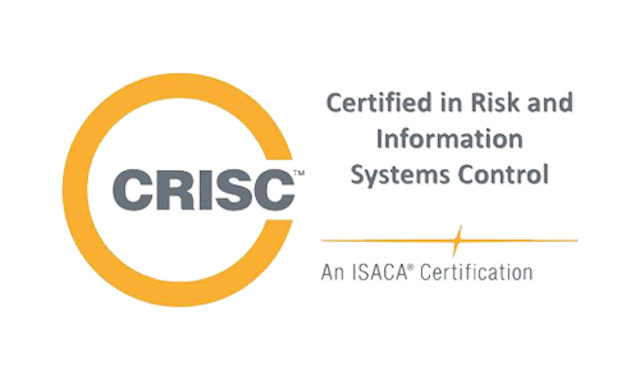
CRISC is a cybersecurity certification that ISACA sponsors. It is designed for IT professionals with experience in risk management and information systems control. The CRISC credential validates your ability to design, implement, and maintain an information system controls program.
To be eligible for the CRISC certification, you must have at least three years of experience in information systems control and risk management. Additionally, you must agree to uphold ISACA’s Code of Professional Ethics.
The CRISC exam is four hours long and covers risk identification, assessment, and evaluation; risk response; risk monitoring; information system controls design and implementation; and information system controls reporting and documentation.
How To Choose A Cyber Security Certification?
Experience
When choosing a cybersecurity certification, it’s essential to consider your experience level and career goals. If you’re starting in cybersecurity, you’ll want to select a certification that covers the basics.
Many entry-level cybersecurity certifications are available, such as the CompTIA Security+ and Certified Ethical Hacker (CEH). These certifications will give you a solid foundation in cybersecurity and help you get started on your career path. If you’re looking to move into a specific area of cybersecurity, such as network security or forensics, you’ll want to choose a certification that covers those topics.
Many specialized cybersecurity certifications are available, such as the Cisco Certified Network Associate (CCNA) Security and Certified Information Systems Security Professional (CISSP). These certifications will give you the specific skills and knowledge you need to succeed in your chosen area of cybersecurity.
Cost
The cost of cybersecurity certifications can vary widely. Some certifications, such as the CompTIA Security+, only require an exam fee. Others, such as the Certified Information Systems Security Professional (CISSP), require an annual membership fee and the exam fee. When considering the cost of certification, be sure to factor in the price of study materials, travel, and time off from work.
Time
The time required to earn a cybersecurity certification can also vary widely. Some certifications, such as the CompTIA Security+, can be achieved in weeks. Others, such as the Certified Information Systems Security Professional (CISSP), require months or even years of study. When considering the time required for certification, be sure to factor in the time needed to prepare for and take the exam and any required coursework or training.
Employer Requirements
Many employers require or prefer employees to have specific cybersecurity certifications. Check with your employer to see if they have any certification requirements or preferences.
How To Get Into Cyber Security
There is no one-size-fits-all answer to this question, as the best way to get into cybersecurity depends on your background and experience. However, there are a few general tips that can help you get started in cybersecurity:
1. Get a degree in computer science or a related field.
2. Pursue cybersecurity certifications.
3. Get experience in IT and network security.
4. Stay up to date on cybersecurity news and trends.
5. Join a cybersecurity community or professional organization.
Conclusion
Cybersecurity certifications are an important way to demonstrate your knowledge and skills in cybersecurity. There are a variety of cybersecurity certifications available, so it’s essential to choose one relevant to your job role and experience.
The best cybersecurity certifications will validate your ability to design, implement, and manage cybersecurity programs and solutions. Staying up to date on cybersecurity news and trends is also important, as this will help you keep your skills sharp and stay ahead of the curve.
Additionally, joining a cybersecurity community or professional organization can help you network with other cybersecurity professionals and keep abreast of industry developments.
Need Managed Security Services To Protect You From Hackers?
Strike Strategies offers a variety of security solutions to meet your needs. We can help you assess your security needs and choose the right service for your business. If you would like to learn more about our managed security services, please get in touch with us. We would be happy to discuss your specific needs and provide a proposal outlining our specialized security services.




